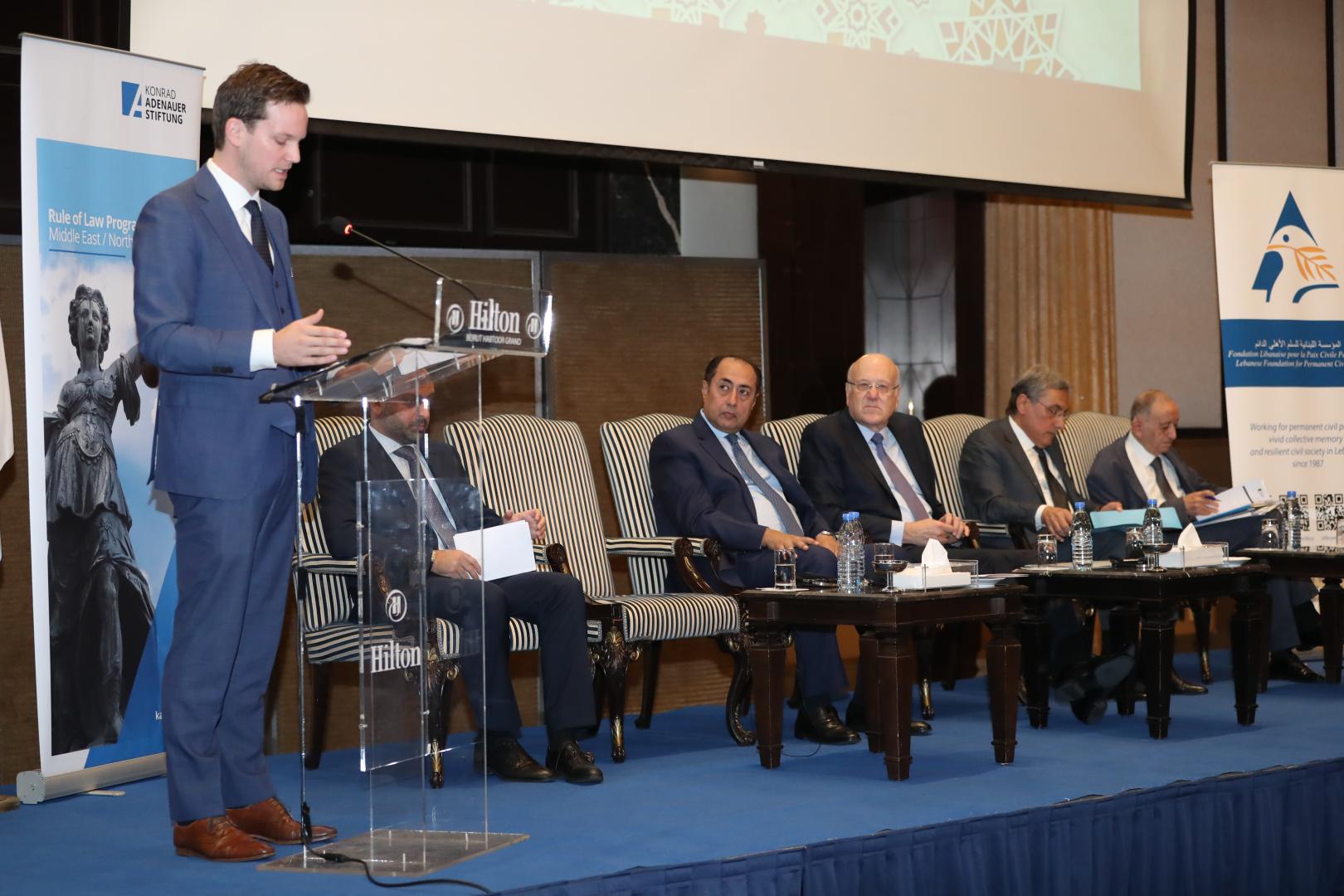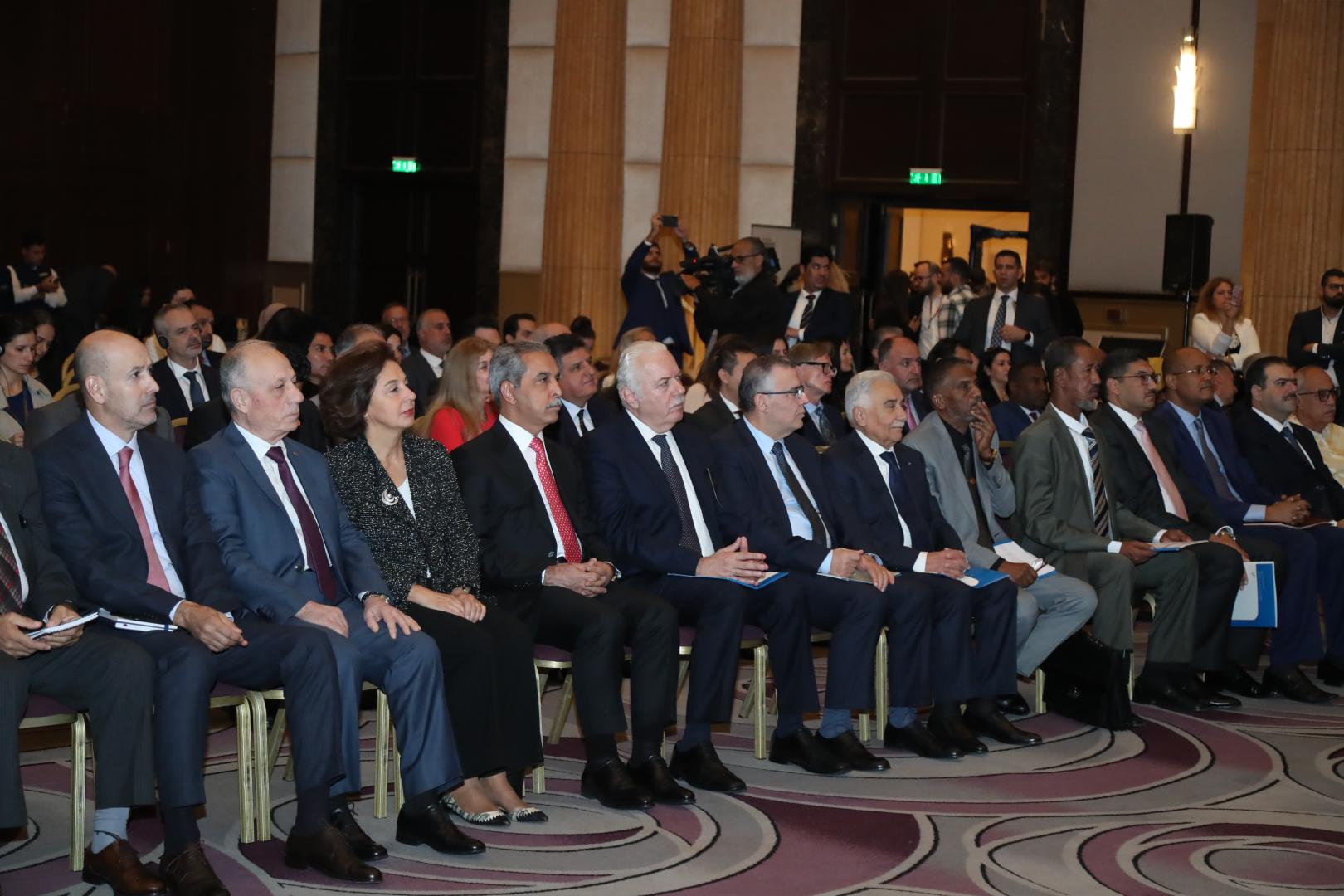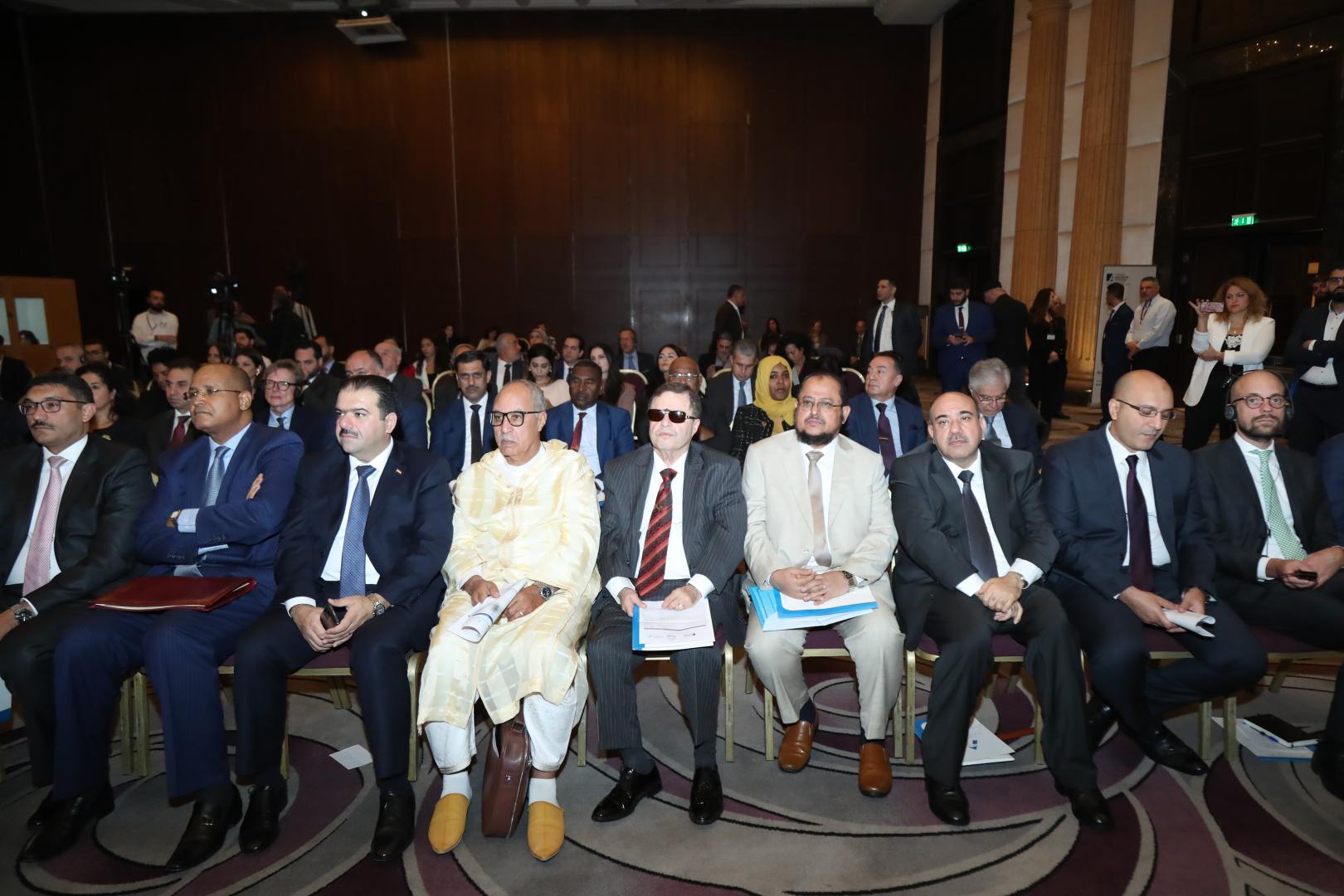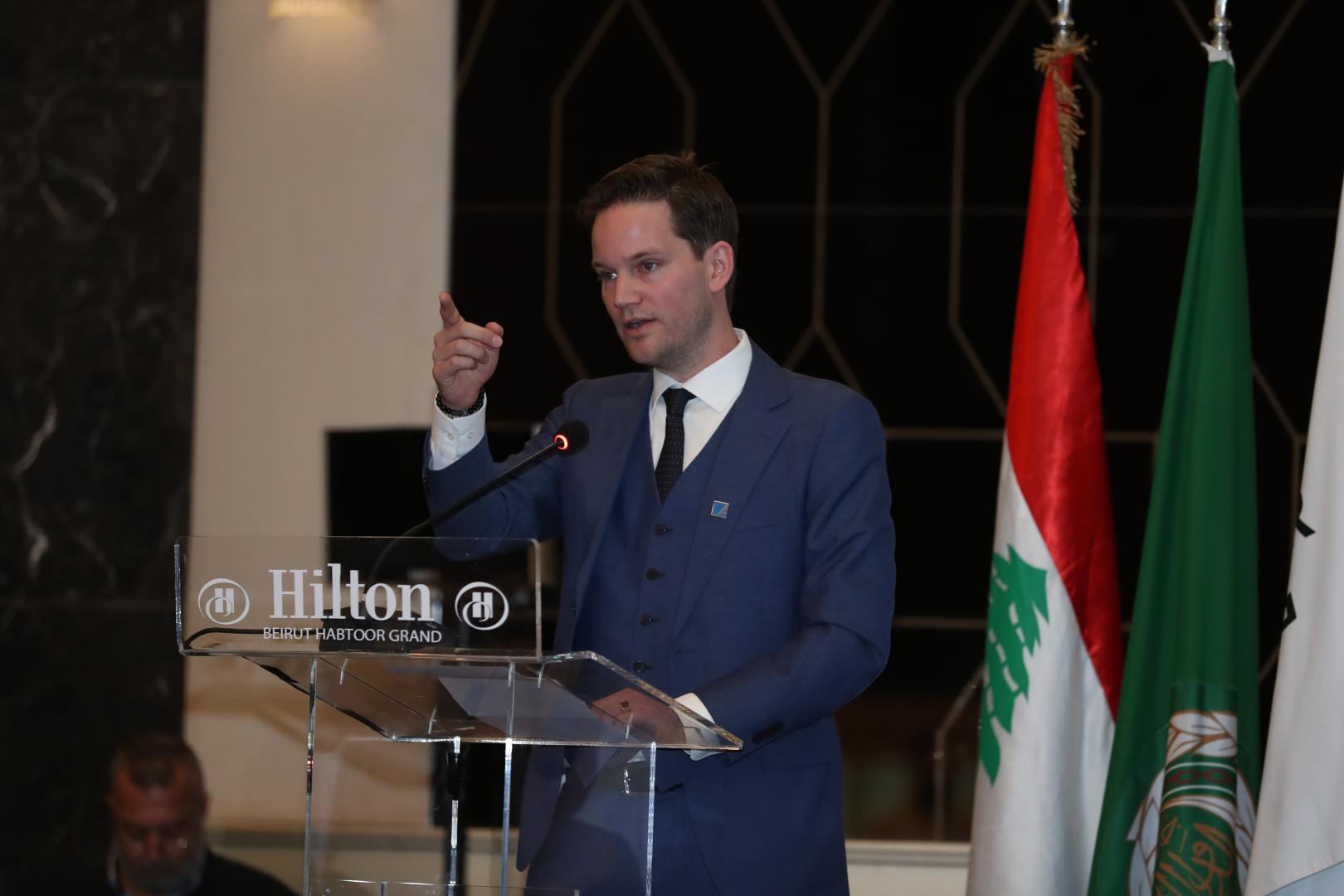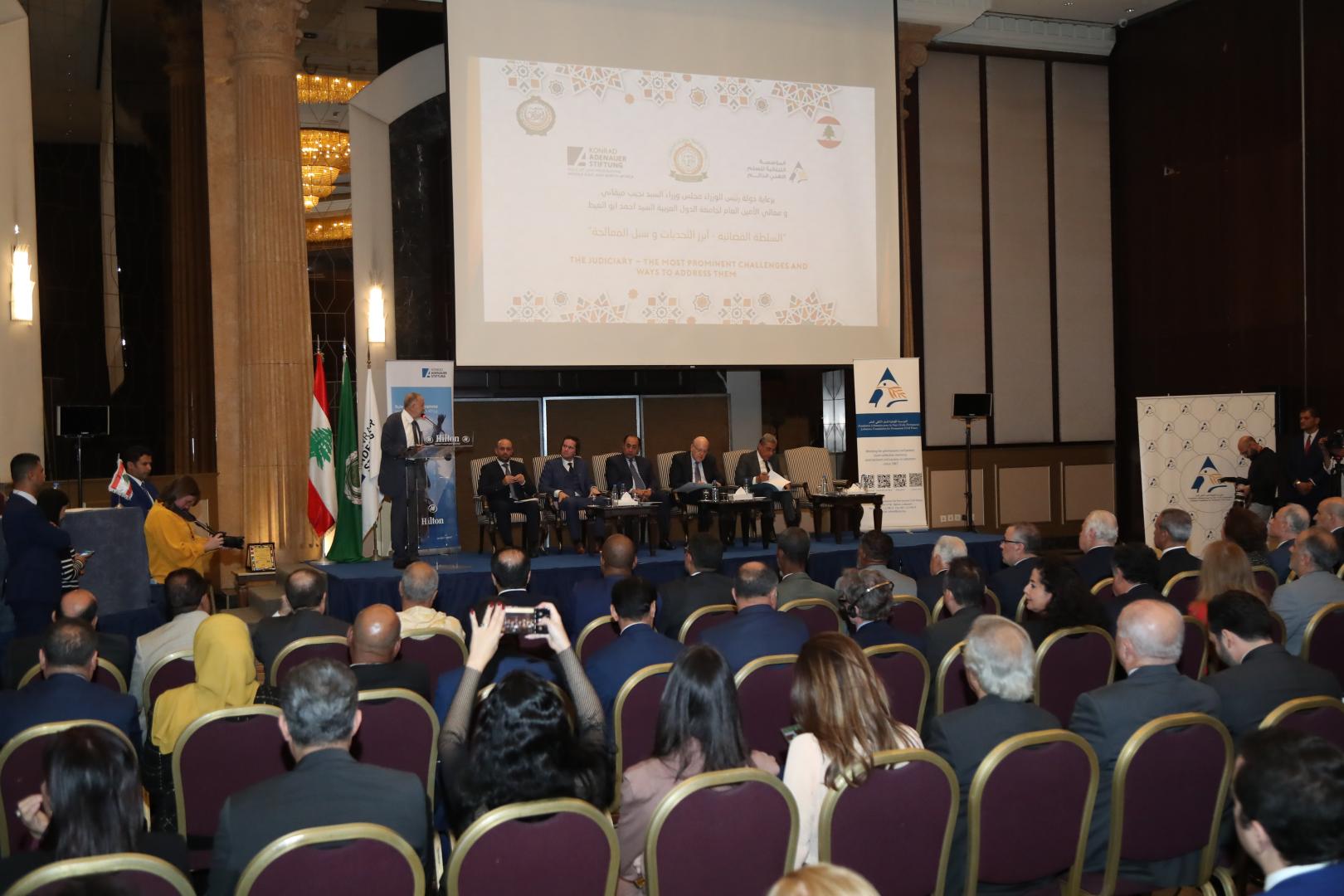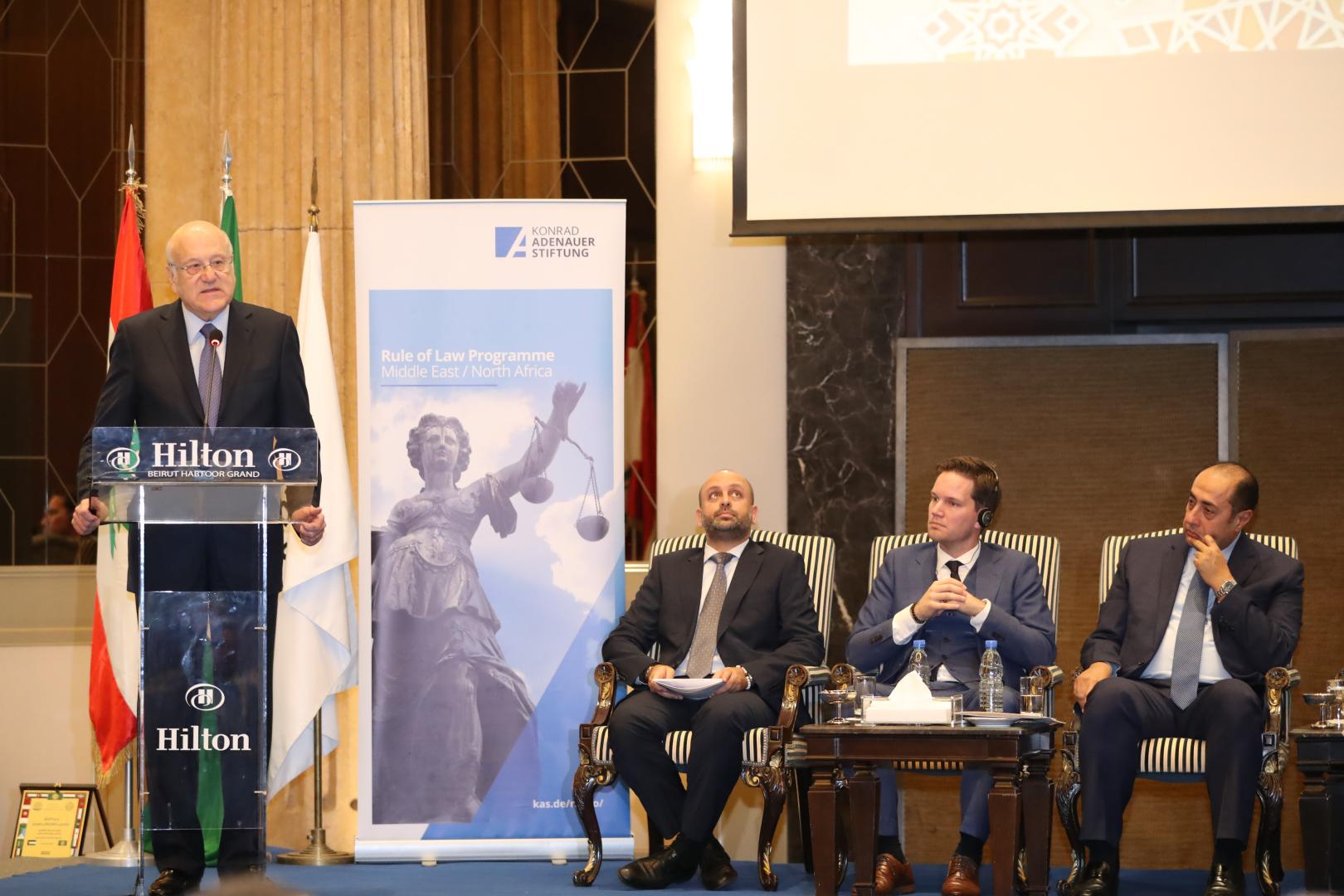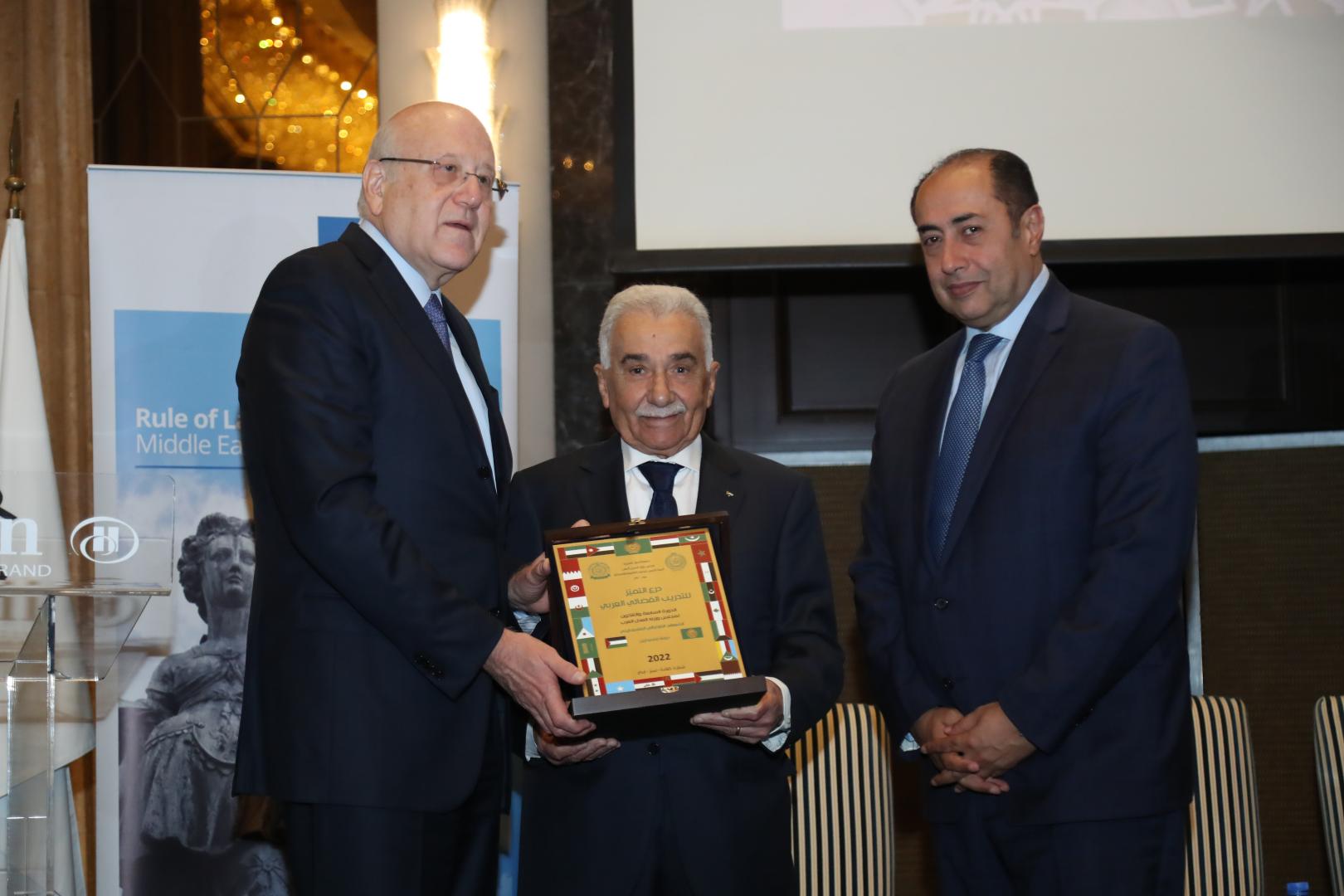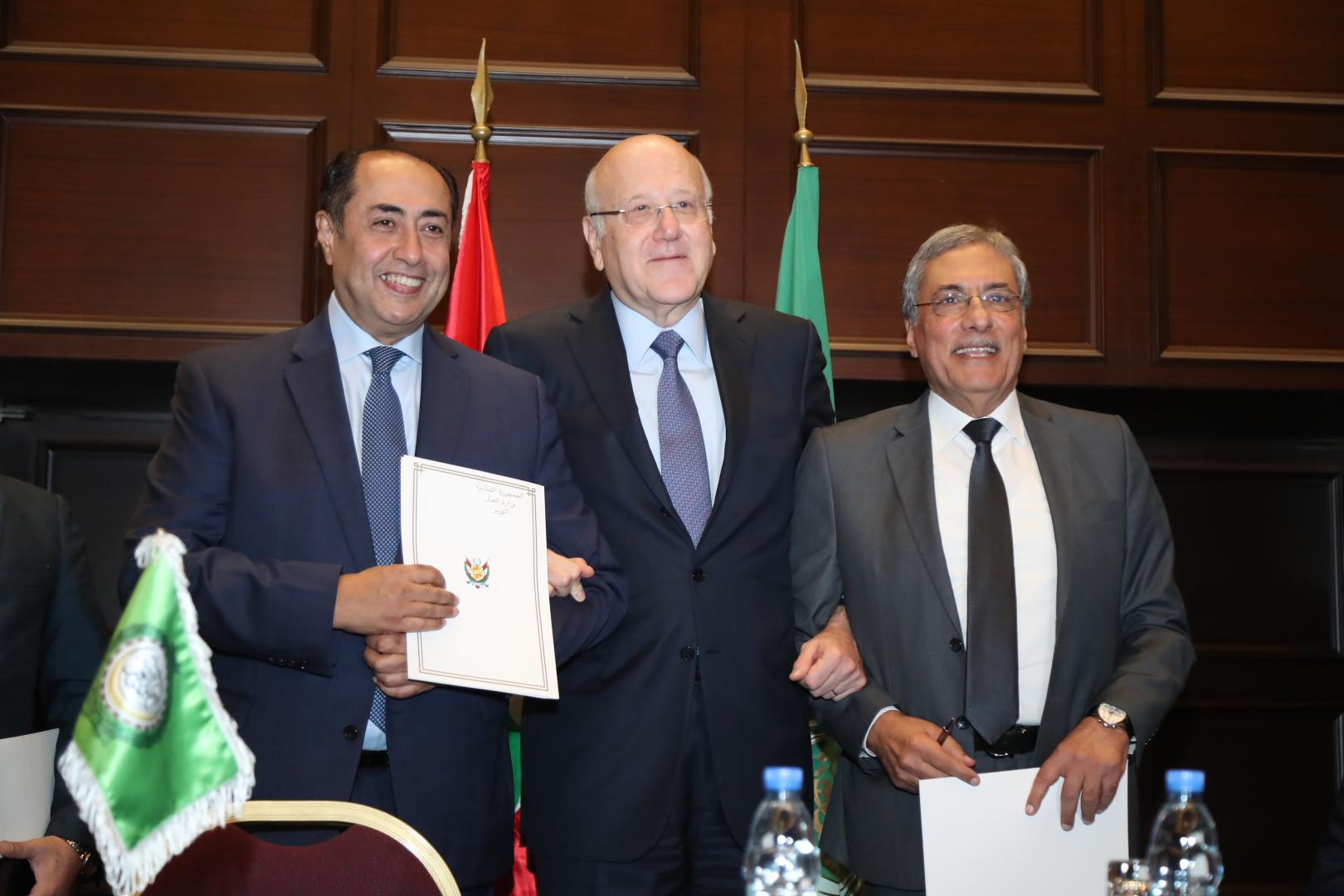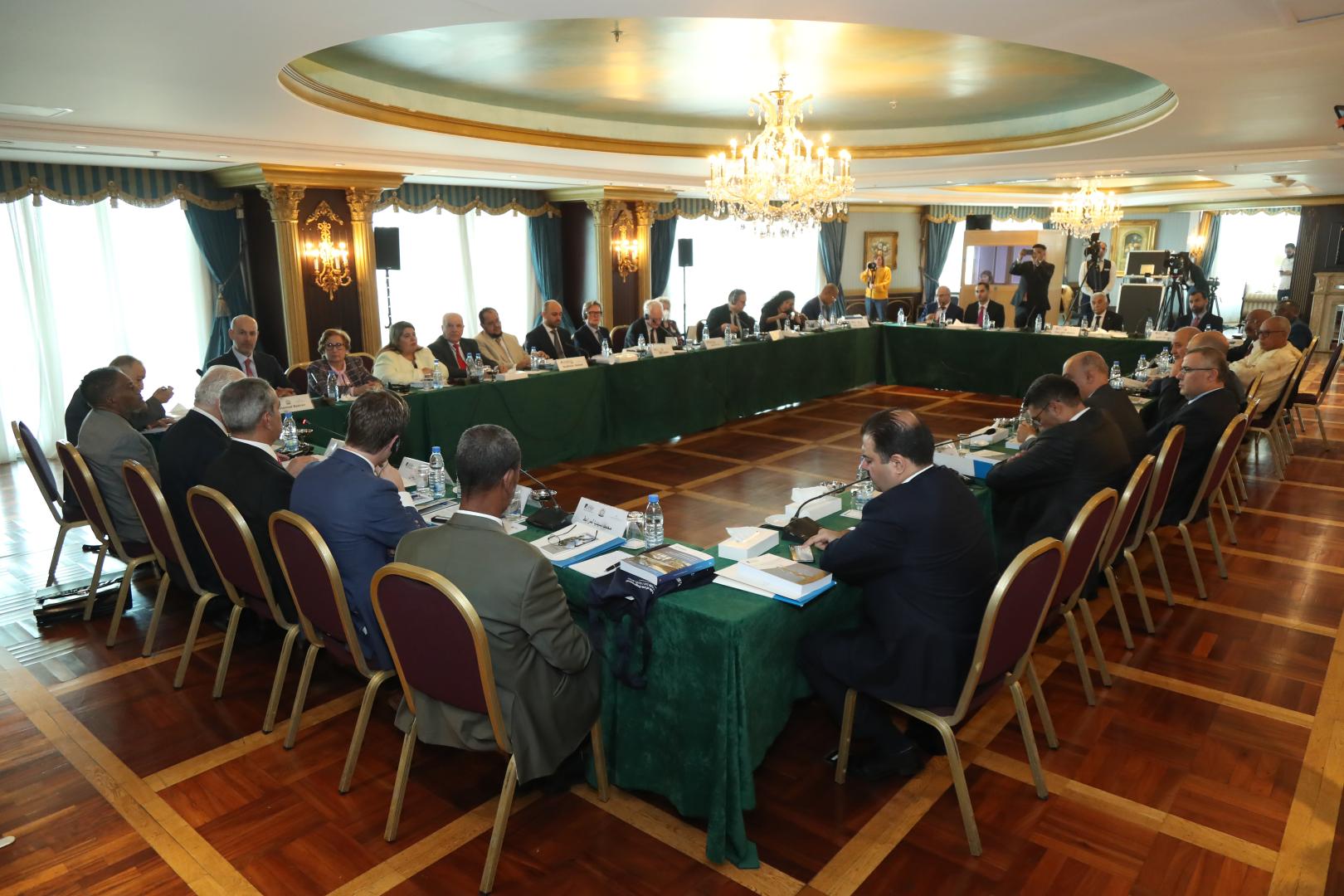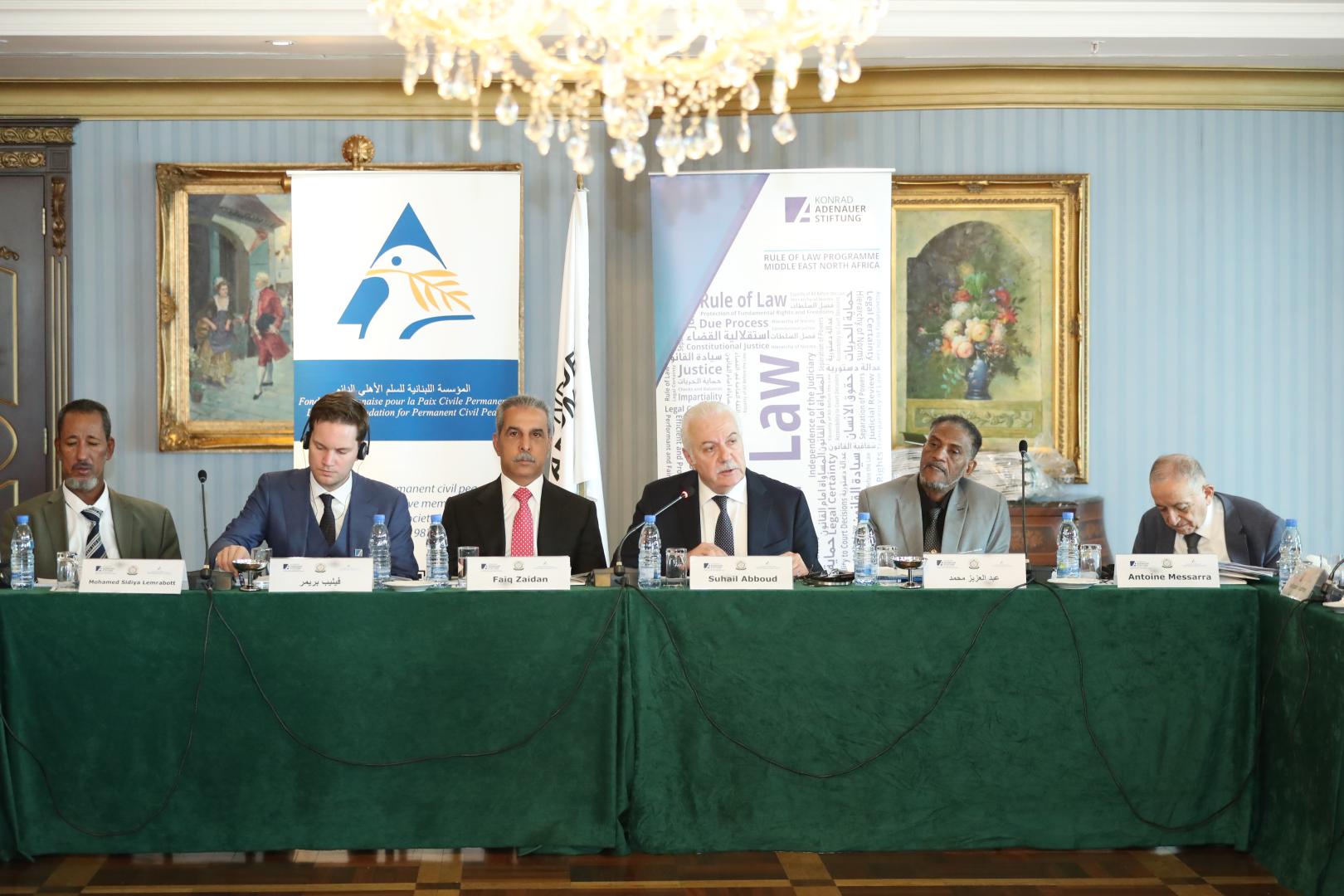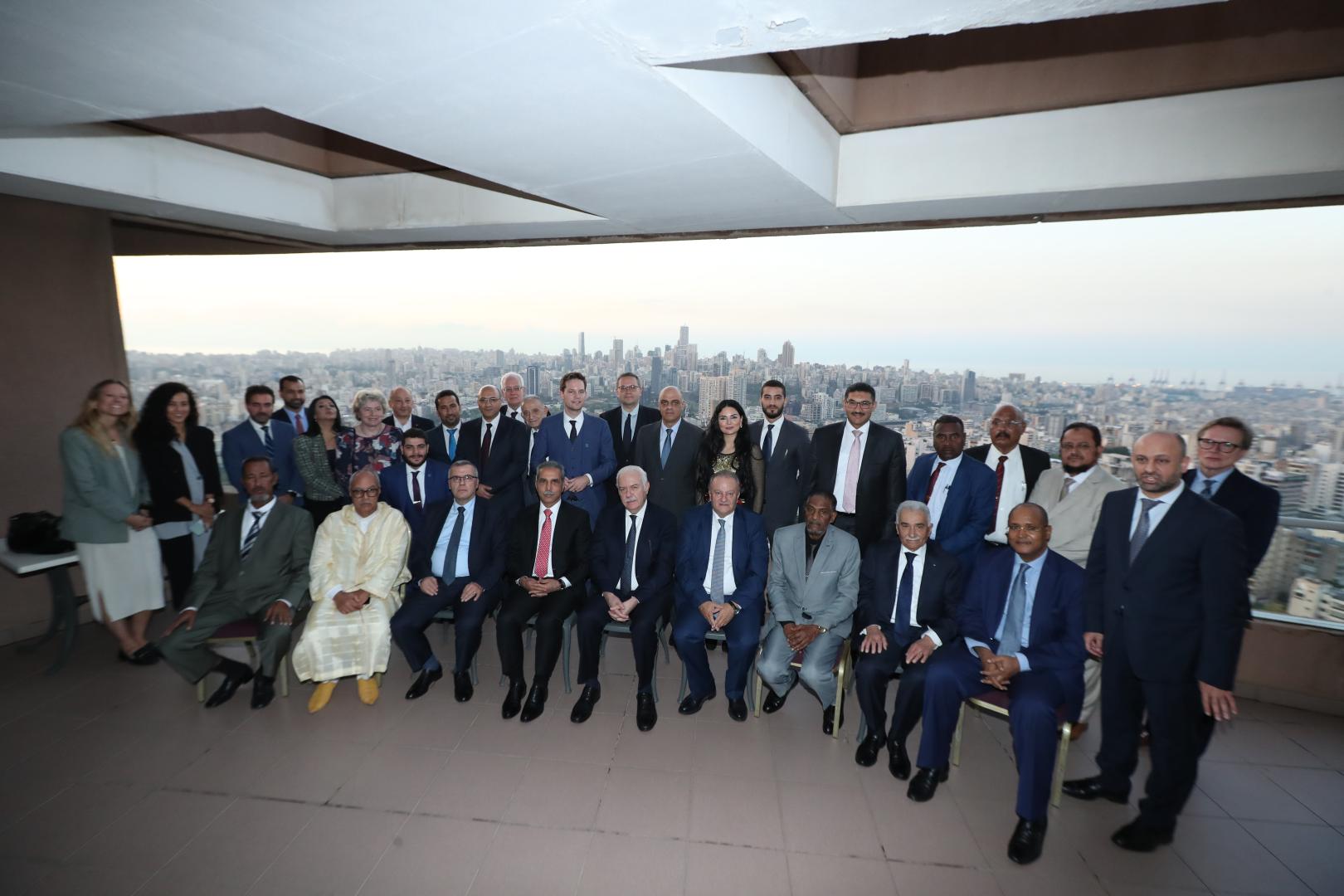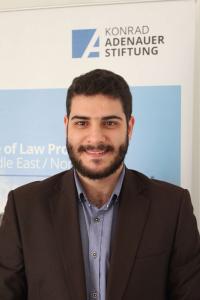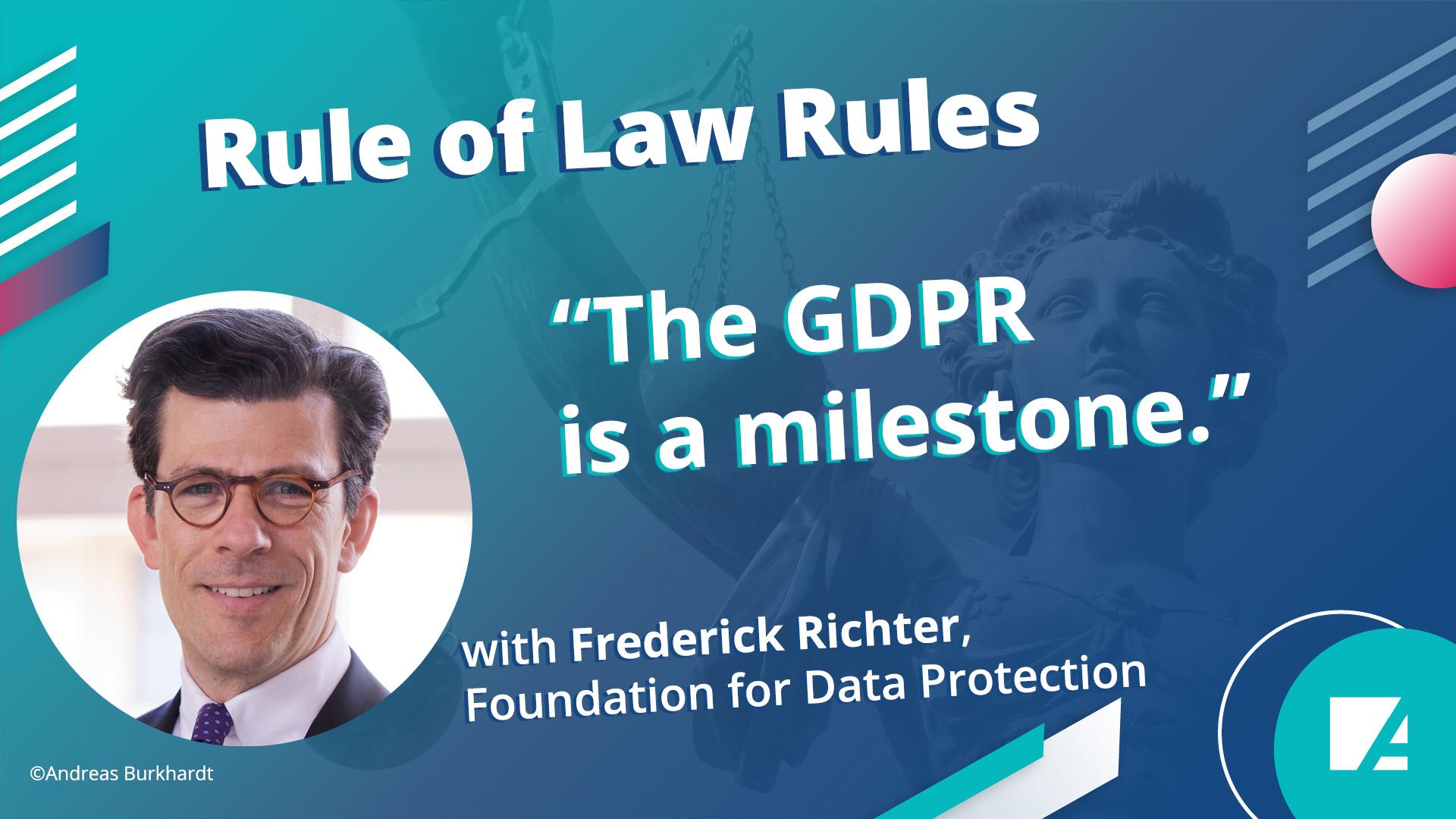At 10 a.m. on Thursday the 10th and following arrival and registration, the day officially commenced with an opening session that included speeches given by Dr. Antoine Messarra (head of the Lebanese Foundation for Permanent Civil Peace), Mr. Philipp Bremer (head of the Rule of Law Program Middle East and North Africa of the Konrad-Adenauer-Stiftung), H.E. Judge Henry Khoury (head of the Arab Center for Legal and Judicial Studies) and H.E. Houssam Zaki (Assistant Secretary General of the Arab League) and H.E. the Lebanese Prime Minister Najib Mikati. Afterwards, the signing of the protocol between the Lebanese Government and the Arab League took place, which undertook a donation of a plot of land to the Arab Center for Legal and Judicial Research from the Lebanese Government. This was followed by the delivery of a trophy of distinction on the judicial training to the State of Palestine on behalf of the Arab Center for Legal and Judicial Research.
The workshop was divided into five closed sessions:
The first session, under the direction of Judge Suhail Abboud (head of the Supreme Judicial Council in Lebanon), was comprised of Judge Faiq Zaidan (head of the Supreme Judicial Council in Iraq), Judge Abdul Aziz Mohammed (head of the Supreme Judicial Council in Sudan) and Judge Mohamed Sidiya Lemrabott (deputy head of the Supreme Judicial Council in Mauritania). This session took on the role of the Supreme Judicial Council as a regulator of judicial work. Judge Abboud shed light on the composition of the Lebanese Supreme Judicial Council whose 8 out of 10 members are appointed by the executive power; the executive power also tries to greatly interferes in the council’s usual work. Moreover, Judge Zaidan noted that the judicial experience in Iraq is generally regarded as exemplary despite the harsh times that Iraq has gone through over the years. As for Judge Lemrabott, he stated that the judiciary in Mauritania is not as independent since it is under the direct direction of the Ministry of the Interior. Indeed, the country lacks proper institutions for the training and education of judges which has led to the recruitment of foreign judges. Judge Abdul Aziz Mohammed focused on the financial and administrative independence of the judiciary.
Following the first session, a case study on the Judiciary in Slovenia was presented by Judge Jan Zobec, judge representing the Supreme Court of Slovenia. He emphasized on the importance of the independence of the judiciary which will allow the Supreme Court in Slovenia to fully focus on itself and on unifying the case law.
The second session, under the direction of Judge Fadi Elias (head of the State Council in Lebanon), was comprised of Ambassador Mohamed Wled Kik (head of the technical secretariat of the Arab Justice Ministers’ Council), Judge Mohammed Raslan (Secretary General of the Arab States and Higher Administrative Courts Federation), Judge Dr. Bernd Pickel (head of the Court of Appeal of the Federal State of Berlin, Germany) and Attorney Nader Gaspar (head of the Beirut Bar Association). This session talked about the relation between the Judiciary and other constitutional authorities as well as its relation with lawyers and civil society organizations. The session also addressed the role of the ministry of justice. Ambassador Mohamed Wled Kik talked about the role of the Ministry of Justice in observing the independence and separation of powers as well as strengthening the bridge between constitutional authorities and the judiciary. Judge Mohammed Raslan further emphasized the importance of an independent budget for the judiciary in order for it to be truly independent from outside influence; the judge also explained the historical background of the principle of separation of powers. As for Judge Dr. Pickel, he expressed his concern in the recruitment of new judges in Germany and emphasized on the importance of good qualities and impartiality in judges. Judge Dr. Pickel also noted that the Ministry of Justice in Germany plays an advisory role in the selection of judges. Moreover, Mr. Nader Gaspar talked about the good and stable relation between judges and lawyers in Lebanon and that the Bar Association plays an important role in preserving these good relations.
On Friday 11th of November 2022, the third session “The role of electronic systems and technology in the service of judicial work” was moderated by Judge Mohamad Badran, Head of the Court of Audit in Lebanon. On one hand, Judge Moustafa Lob, Head of the Administrative Chamber of the Court of Cassation in Morocco, discussed the importance of digitization of courts and the efforts that are being done in Morocco to simplify and speed up legal procedures and how courts and prisons are propitious to activate the virtual trial. On the other hand, Judge Ali Darwish Al Musiemi, Secretary General of the Supreme Judicial Council in Jordan, shed light on the Justice Sector strategy for 2022-2026 in Jordan that cannot be implemented without the use of technology.
The fourth session titled “The mechanism and procedures for admission into the judiciary - Key Challenges, Good practices and Comparative experiences” was conducted by the Head of the Constitutional Council in Lebanon, Judge Tannous Meshleb. The panel consisted of Judge Villu Kõve (Head of the Supreme Court in Estonia), Judge Issa Abu Sharar (Head of the Supreme Judicial Council in Palestine), and Judge Nada Dakrub (President of the Judicial Institute in Lebanon). There was a discussion among the judges about the conditions for becoming judges, the importance of continuous judicial training and the lack of motivation among young people to choose the career of a judge.
The fifth and final session titled “Mechanisms and tools for evaluating the work of the judge - Comparative experiences” was comprised of Judge Nadhem Salem, the Head of the Judicial Inspection in Yemen and of Judge Abou Sifian Ahmad from Sudan. The two discussed the importance of continuously assessing the performance of judges and evaluating them. In addition, it was explained that the judicial inspection body has the option of conducting regular or random inspections.
At the end of the conference, the judges expressed their positive feedback on the workshop. This was followed by the final words of the organizers.
Written by Marilyn Saliba & Patrik Saad



